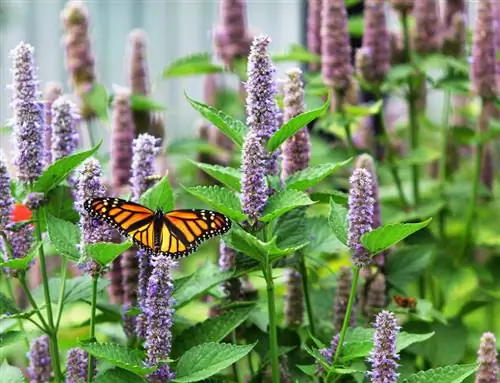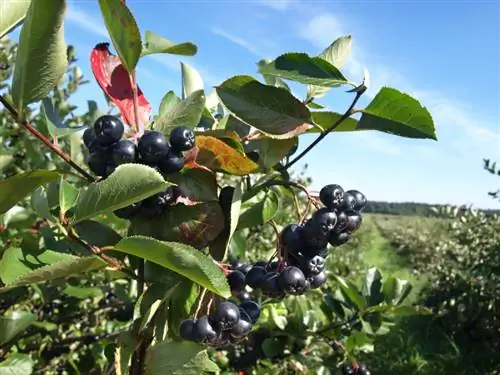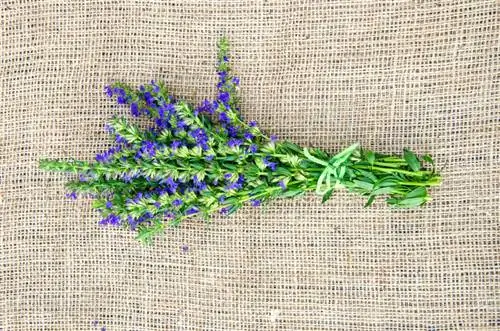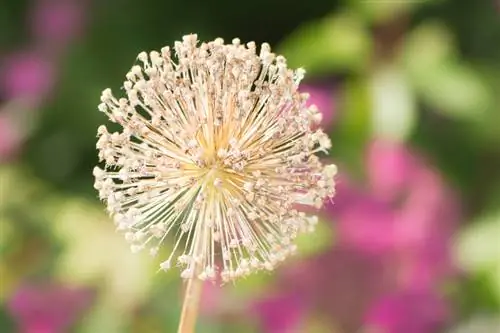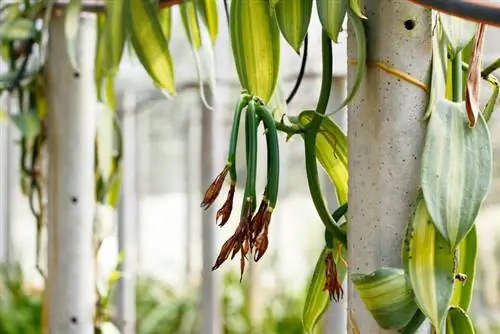- Author admin leonars@hobbygardeners.com.
- Public 2023-12-16 16:46.
- Last modified 2025-01-23 11:20.
Hyssop comes from the south and is a sun worshipper. Otherwise it is undemanding and does not require extensive care. The heat-loving herb is also frost-resistant and also thrives outdoors in our latitudes.
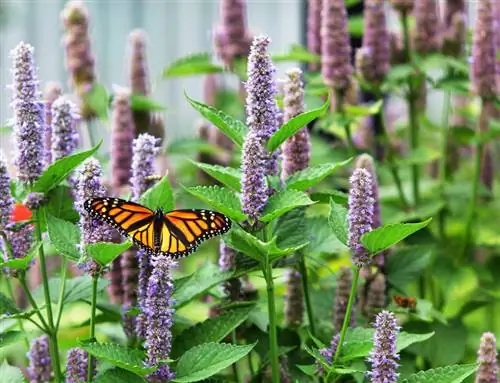
How do you care for hyssop properly?
Hyssop care includes little watering, occasional fertilizing with lime-based fertilizer in an ideally sunny location. Prune after flowering and before spring growth to avoid balding of the branches. Hyssop is hardy and resistant to pests and diseases.
Hyssop (lat. Hyssopus officinalis) is a perennial herb whose branches tend to become woody, so that over time the hyssop develops into a bush about 50 cm high. The spice plant belongs to the mint family and has the following characteristics:
- a variety of square stems,
- small oblong leaves,
- terminal flowers in strong blue.
What should you consider when watering hyssop?
Hyssop can go without watering for a long time. It likes dry, well-drained soil and, in its wild form, likes to grow on rocky slopes. The drought is not a problem for the undemanding plant. Only the young plants need the additional watering.
Does hyssop need fertilizer?
Hyssop prefers lime-rich soils. If hyssop remains in the same location in the garden for a long time, the soil around the plant should occasionally be supplied with a lime-containing fertilizer (€7.00 on Amazon). Transplanting after three-four years is recommended.
When and how do you cut?
Immediately after flowering - as with lavender - a more or less radical cut should be carried out in order to avoid the branches becoming bald. You can also cut back by about a third before budding in spring.
Is hyssop susceptible to diseases and pests?
Hyssop has an intense aroma that keeps pests away from itself and its neighbors in the bed. He is also not afflicted by illness. The bees and butterflies love the sweet-tart smelling herb.
Is hyssop hardy?
The heat-loving hyssop is frost-resistant and can be left outdoors all year round. The plant can also be cultivated in a sufficiently large container. This should be protected with suitable means in the event of very severe, permanent frosts.
Tip
Fresh hyssop smells and tastes very strong and is therefore used sparingly for seasoning. However, it loses its aroma when cooked.

